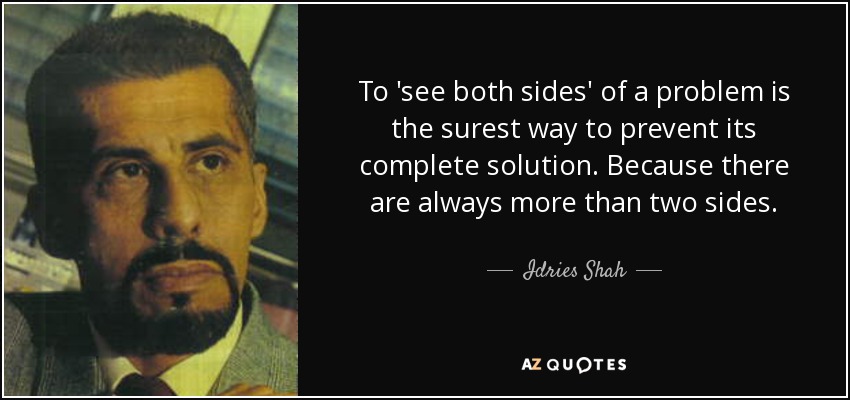Wondering just that issue, the Quincy Institute profiles the Institute for the Study of War, the eminences grisé behind Nat-Sec Nutsacks™, and the bottom feeders of information dispensed to the mainstream media, on the Russia-Ukraine war. "A Case Study in American Propaganda" is about right. The first three grafs will summarize that issue:
A Russian is on an airliner heading to the US, and the American in the seat next to him asks, “So what brings you to the US?” The Russian replies, “I’m studying the American approach to propaganda.” The American says, “What propaganda?” The Russian says, “That’s what I mean.”
If you don’t get the point, I can help. A few weeks before I heard this joke, I heard a Russian make the point explicitly: Yes, Russia’s state-controlled media is full of propaganda, but at least most Russians are aware of that and take the prevailing narrative with a grain of salt; Americans, in contrast, seem unaware that their own prevailing narratives are slanted.
I think there’s some truth to this, and I think the Ukraine war is a case in point. I don’t just mean that mainstream media’s coverage of the war is biased (though I think it is, as tends to be the case during wars). I mean this coverage exemplifies the difference between American and Russia propaganda—and so helps explain the difference, asserted by that joke, between American and Russian attitudes toward propaganda.
Read the whole thing. And, it's by Robert Wright, whose "everything is nonzero" I generally loathe, and which I think is a cheap knockoff, whether consciously deliberate or not, of Idries Shah's "no twosiderism." But, this is good. Wright, whether he actually believes it or is just using a rhetorical trope, says he thinks the problem is all due to America having a more complicated media ecosystem in a liberal democracy rather than being more gullible than Russians. I wouldn't be so sure of that.
He goes on to note how much the ISW is cited by big media punditry. And, how much it gets big bucks from the military industrial complex.
The bias side? Nothing that sticks out like a sore thumb. Rather, Wright notes that much of it is in ISW's "framing" of what both Russia and Ukraine are doing on the ground, a framing it willingly passes on to the MSM.
Again, read the whole thing.
But, take Wright with a grain of salt. As someone who does NOT fully know the workings of American media, he's too generous to most national media. The ISW is an extension of the DC establishment, so, for many "national security" reporters, citing it uncritically is all about "access." Or with even big newspapers perhaps continuing to be short-staffed in this area, about forced shortcutting. Look at political reporters whose idea of a story any more is half a dozen Tweets linked by connecting and explanatory paragraphs.






